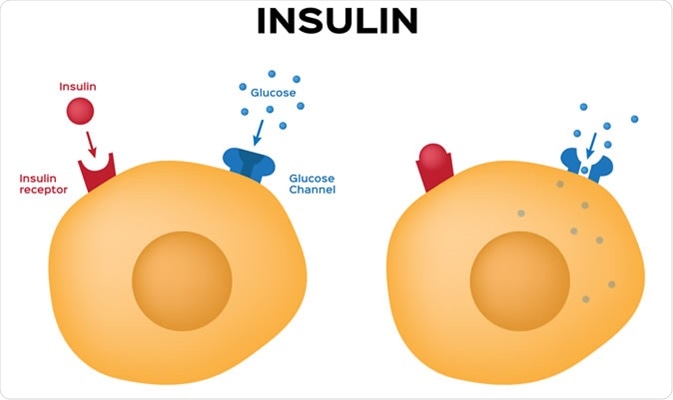Endocrinology is a field of physiology and medicine that deals with endocrine glands and hormones of the body. The discovery of the endocrine system has a long history that involves a wide variety of unusual experiments, conflicting opinions, as well as mutual agreements.
History of discovery of hormones
The history of endocrinology can be broadly classified into three phases: the 1st phase of description of endocrines, the 2nd phase of analytical endocrinology, and the 3rd phase of synthetic endocrinology.
In 17th and 18th centuries, the practice of castration was probably the first evident history of endocrinology. People used to undergo castration (termination of testicular activity) before puberty to maintain pure and forceful voice and enhance breathing control. The practice came to an end in the 20th century when people understood that there were many adverse side-effects, such as loss of temporal hair recession, longer than normal length of arms and legs, etc.
In 1849, Berthold, a German physiologist, conducted some experiments on capons (castrated rooster) to prove that transplanting testes from intact bird into capons’ abdomens can recover normal male characteristics. However, his discovery remained unnoticed.
In 1889, Brown-Séquard, a French physician, injected himself with a preparation made up of blood from testicular veins, semen, and extracts of the dog, guinea pig, or rabbit testicles and reported significant improvement in his strength, stamina, and concentration. He was probably the first person who came with an idea of endocrine replacement therapy.
The notion of the replacement therapy was next nurtured by a famous surgeon, Victor Horsley, who initially noticed that dissecting the thyroid gland from monkey led to development of myxedema symptoms. Later, he proposed transplantation of sheep’s thyroid into human patients to improve clinical outcomes. His idea was cultivated by another physician, George Murray, who made an extract of sheep’s thyroid (pink thyroid juice) and injected it into a woman patient and found an astonishing improvement in her condition.

Modern day endocrinology consultation - Image Copyright: Image Point Fr / Shutterstock
The first defined hormone and its discovery
In 1902, William Bayliss and Ernest Starling found that in response to the delivery of acidic fluid from the stomach to the intestine, secretin, an internal secretion, was released into the blood from the endocrine cells of the duodenum. They also revealed that secretin stimulates the secretion of bicarbonate from the pancreas that neutralizes acidic fluid in the intestine. In 1905, Ernest Starling first coined the term ‘hormone’, and secretin was the first described hormone.
Discovery of insulin
In the period of 1900 – 1930, many hormones were identified, and a wide range of research on hormone biochemistry, reproductive cycle, and endocrine-related surgeries were performed. In 1916, the Association for the Study of Internal Secretions was established, which is presently known as the Endocrine Society.

Insulin unlocks the cell's glucose channel vector. Image Credit: Gritsalak Karalak / Shutterstock
The journey of insulin identification started in the 19th century with the observation that dissection of the pancreas from dogs resulted in the onset of diabetes. However, on that time, isolation of insulin was difficult as the pancreas makes both endocrine and exocrine secretions.
In 1921, Frederick Banting and Charles Best conducted an experiment on diabetic dogs and cured the condition with pancreatic islet cell extracts of healthy dogs. This marked the discovery of insulin. Moreover, Frederick Banting isolated insulin after inactivating the exocrine part of the pancreas by ligation.
In 1921, insulin was injected for the 1st time into Leonard Thompson who was suffering with type 1 diabetes. This treatment completely reversed his condition, which used to be life-threatening before the discovery of insulin.
Discovery of sex hormones
In the late 19th and early 20th centuries, Eugen Steinach discovered sex hormones through his experiments on rats. He removed the testicles from rats and implanted them in rat’s abdomen, and he found that normal male characteristics of the rats were terminated. Later, he revealed that interstitial cells of the testes produce male sex hormones.
Eugen Steinach also developed a procedure to increase testosterone level in the body. His experiments revealed that both testosterone level and sexual drive can be increased in men by sealing or tying off the ducts (vas deferens) that carry sperm from the testes to the penis. This procedure is called vasectomy in the modern era of endocrinology.
All these revolutionary findings together paved the way to modern endocrinology. The discovery of endocrine system has a very long and rich history, starting from the dark ages when Victors of battle ate the organs (brain, heart, gonads) of enemies thinking that they contained important powers. The journey still continues with exciting and innovative discoveries, such as discovery of leptin and its association with obesity.
Further Reading
Last Updated: Dec 30, 2022